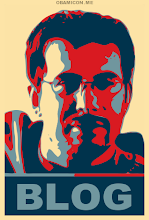BILL'S EFFECTIVENESS BASED ON WILLINGNESS TO SPEND
HAYWARD, Calif. - The success of the $150 billion stimulus plan that President Bush and Congress agreed to last week depends on one thing: that people will spend the potential $1,800 rebate checks quickly, but many Cal State-East Bay students are not buying the premise.
“I would spend some and save some,” said Joe Pecoraro, a senior majoring in accounting, “I tell my friends to save, too, but they usually don’t.”
In interviews across campus, he and others expressed various preferences for the use of the possible funds, which the Bush administration hopes may jumpstart an ailing economy.
Freshman Aurelio Padilla travels from Oakland to school using BART and buses and might put a rebate check from Uncle Sam towards some new wheels somewhere down the line.
“I would probably save it and put it towards buying a car,” said Padilla.
Others like Angelica Gonzalez, freshman majoring in nursing, are inclined to save the money to use later in the year.
“I would probably save it for books in the fall,” said Gonzalez.
But, she also admitted that she might spend it during her yearly summer vacation in Mexico, which would benefit that country’s economy more than the U.S.
The problem is that saving the money or paying off a delinquent credit card bill is not what the stimulus bill is intended to do.
The Federal Reserve, which oversees the nation’s treasure chest, would rather have people spend, not save the checks, which could run anywhere from $300 to nearly $1,800 for taxpayers who have the maximum four dependents.
Most economists agree that the economy needs a quick injection of money to lessen the burden of a shaky housing market and a precipitous rise in foreclosure due to iffy sub-prime loans.
If the stimulus bill is passed by Congress, the rebate checks, which could arrive in the mailboxes of many households in May, will carry no conditions on how they are spent, but, instead, present a policy gamble by Washington that they will wiggle the economy out of the grasp of a possible recession.
CSUEB economics professor, Lynn Paringer, believes the best way to help the economy is to get the money into the hands of people with lower incomes.
“It’s fair to say that lower income people are more inclined to spend it more quickly,” said Paringer.
Depositing the checks in your savings account will help the economy in the long run, but not as quickly as the government wants.
“If it goes to a bank you won’t see it helping until after a cycle,” but Paringer added, “If you put it under your mattress, nothing happens.”
Paying your debts with the money will help your personal finances, but also won’t do much for the economy in the short term.
Graduate student, Moises De Loera, who is closing in on his teaching credential, might apply the check towards his school loans.
“I need to pay some bills and I have school debts,” said De Loera, “and it’s almost time to pay those bills.”
Paringer says if that paying off your bills will help the economy, but not until that money is able to be invested down the line.
She believes that the key to helping the economy is through targeting the stimulus towards businesses, but details of the stimulus bill will have to limit what areas they invest.
“What if your business is working at capacity? Will you invest? And what’s to say they don’t invest in the U.S.? Will this create incentive for businesses to build new factories or hire more workers,” said Paringer.
The agreement that President Bush; Speaker Nancy Pelosi and Minority Leader John Boehner arrived at last week did not include demands from Democrats that the stimulus include extending unemployment insurance and bolstering food stamp programs, but did include tax incentives for small businesses that Republicans favored.
Senate Democrats said Monday that they will seek to include benefits for unemployment insurance and food stamps in their plan, both areas that economists believe people will quickly spend their checks on rent or staples food and clothing.
During his State of the Union speech, President Bush said any attempt to deviate from his agreement with Congress will “delay or derail” the stimulus bill.
He also reiterated that the bill must be passed quickly to have any effect on the economy.
Thursday, February 07, 2008
Subscribe to:
Post Comments (Atom)



No comments:
Post a Comment